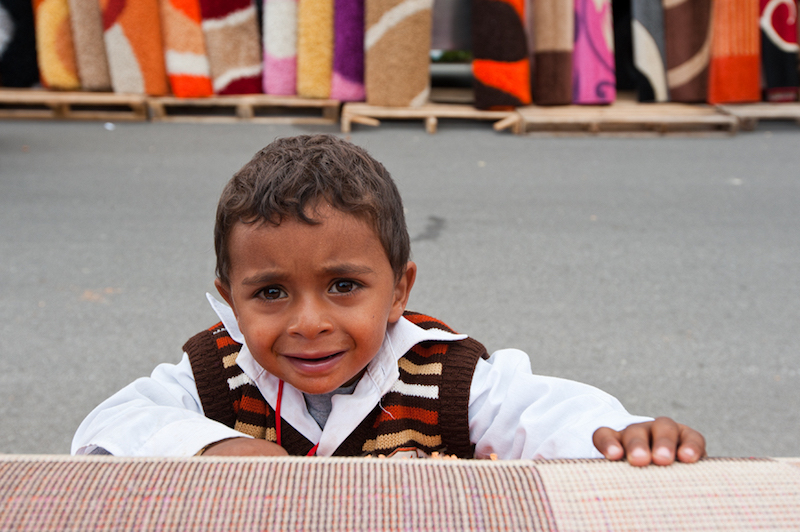The Roma population makes up the largest ethnic minority in the European Union, totaling 10-12 million citizens. Social exclusions and poverty have led to concerns regarding education, housing, health and employment among the Roma communities in the European countries. The European Union’s biggest influencing countries, France, Germany, and Italy are excluding the Roma by implementing deportation practices.
What the European Union should work with its members to implement a system to integrate the Roma, so appropriate education, housing, health, and employment, become accessible to everyone. Passing the Roma around by sending them back to so-called countries of origin, as France has done by deporting them to Romania, will only lead to a circulation of countries doing the same thing. Deportation and isolation does not mean the problem will disappear.
It is worth mentioning that the Roma population has always been a “traveler” culture, and as such they were always on the move. Europeans have called them squatters, and have called for the governments to remove these people due to criminal activities they have been involved with, as well as not making any efforts to assimilate within the European cultures. Considering Roma history, they were isolated in the communist era, and now they are roaming country to country without being stable in one location. This has caused concern, and has been the primary problem why no resolution has been reached on how to overcome these problems.
While Romas are not a unified homogenous group, they were generally known for being skilled metalworkers, tinsmiths, woodworkers, carpenters, blacksmiths, horse traders and trainers. They were also known as dancers, singers, and musicians. However, the isolation and living in poverty have pushed them to become thieves and commit daily crimes. The European Union as a whole would be best positioned to commit resources and work with its member countries to fix this problem. They have to start treating them as regular citizens, not secondary citizens.
Any integration program should recognize the culture and experiences of the individual Roma groups. It should consider education programs that respond to the unique needs of Roma children. It should also involve working with the Roma communities to provide appropriate housing to prevent health issues that occur due to the lack of clean water and shelter. Lastly, the most important is improving employment opportunities. Economically speaking, this would open up more jobs and the country would benefit in the long run.
This issue is large, but breaking it into its constituent parts and taking the essential steps as mentioned above would benefit the European Union in the long run. When France deports the Roma to Bulgaria and Romania, the issue does not go away. Romanians and Bulgarians will have to deal with the deportees, and others will replace them in France. The Roma population faces discrimination and rejection where they are, and they still remain disintegrated to the point where they are pushed away.
The deportations, when the Roma are already secluded from non-Roma people, create a ricochet effect. They are part of the EU, so moving around every three months does not remove them from the continent. It only gives them a sense that they do not belong, and are unwanted anywhere. This does not serve as encouragement for anyone who wants to be a productive member of society, and inarguably a large number of the Roma population have expressed such wants when interviewed on the situation they face.
In a 2012 Commission’s report, the European Union outlined the need for continuous dialogue between national, regional and local authorities and Roma civil society in designing, implementing and monitoring national strategies to combat poverty and social exclusion, increase employment, reduce school drop-out rates and increase educational attainment. The way forward was to hold the Member States accountable of their policy goals and commitments to pursue bilateral and multilateral exchanges for Roma inclusion. The report also outlined the fighting discrimination legislation by setting measures to fight discrimination, enforcing legislation; raising awareness; increasing awareness among Roma of their rights; and fighting against human trafficking and the labor exploitation of children.
The EU has a large problem at hand that they have been avoiding for a very long time. The Roma population is growing dramatically, and something has to be done. This does not mean that we have to relive 1945 because of the ideologies that the Roma do not belong in Europe, but rather look at it from a positive light. At the end of the day the Roma are still 10-12 million people living in the continent. It is not an easy issue, and should not be excused with statements that the Roma do not want to be integrated, that they seclude themselves, and that they are nothing but trouble. Steps need to be taken in consultation with the various Roma communities in order to solve this growing issue.
The European Union needs to sit down with leaders of the Roma population, and come up with a plan that creates stability in which all the Roma are included. Creating apartment complexes designed for the Roma could combat the housing problems they face. For the Roma that are constantly moving, the EU could create online educational programmes to try and maintain some level of literacy. The new generation of Roma need to be given a chance to be first class citizens, and not secondary.
Photo: Little gypsy kid, by Nikos Koutoulas via Flickr. Licensed under CC BY-NC 2.0.
Disclaimer: Any views or opinions expressed in articles are solely those of the authors and do not necessarily represent the views of the NATO Association of Canada.




